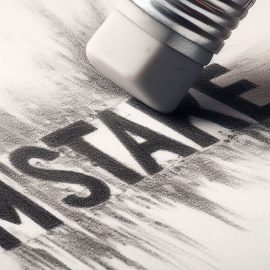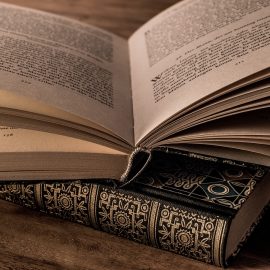

This article gives you a glimpse of what you can learn with Shortform. Shortform has the world’s best guides to 1000+ nonfiction books, plus other resources to help you accelerate your learning.
Want to learn faster and get smarter? Sign up for a free trial here .
Do you want to level up your learning game? How can you learn better, faster, and retain the material more effectively?
When it comes to learning, the method you use is an important consideration. You must learn in a way that’s appropriate for both the subject or skill in question as well as your individual learning style.
Here are our picks of the best books for learning to help you learn more effectively.
Level Up Your Learning
When it comes to learning, commitment isn’t enough. You also need the right approach: A methodology that’s uniquely suited to your needs and learning style. Once you’ve figured out the best approach for you, your learning will accelerate significantly.
In this article, we’ve compiled a list of the best books for learning to help you fine-tune your approach and learn in a way that resonates with you.
Reading and Writing
Reading and writing are the fundamental pillars of learning pretty much anything. Discover the best books for learning techniques for reading and writing from our library.
How to Read a Book is the classic guide to reading effectively. It teaches how to understand the crux of a book within 15 minutes, how to analyze a book intelligently, and how to synthesize multiple books together. If you read a lot of books, then it makes sense to learn how to read better and increase the value of your reading.
How to Read Literature Like a Professor
How to Read Literature Like a Professor is a crash course in the art of reading intelligently. In this book, you’ll learn how to identify common literary conventions and gain the skills necessary to analyze them like a professor would. You’ll discover why Goose had to die in Top Gun and why sex scenes aren’t always about sex in literature.
On Writing Well is the best book for learning writing because it offers a back-to-basics approach, focusing on honing essential writing skills rather than trying to employ complex stylistic techniques. Even if you’re not a professional writer, you’ll often find yourself in a position where you need to express an idea with words, and whether you’re crafting an email or a resume, you can apply Zinsser’s principles of simple, clear, and engaging writing. This book explores how to approach the discipline of writing and effectively put your ideas into words.
Are you an academic or non-fiction writer? Have you ever sat in front of a blank screen and struggled to write a paper? In How to Take Smart Notes, researcher Sönke Ahrens argues that this happens because traditional, prewriting note-taking methods don’t work—and that you can avoid this issue by using the slip-box system: a method of taking notes and organizing them that fosters the creation and publication of original ideas.
Improving Focus
In today’s information-overloaded society, it can be difficult to focus and keep distractions at bay. Social media notifications, work emails, and general life stressors pile up and fragment our attention. But like with anything, focus is a skill you can develop, and one way to do that is to read books on the art of attention.
In today’s notification-ruled world, it’s easier than ever to get distracted from what’s really important—your values, your relationships, and your work. In Indistractable, Nir Eyal develops a four-part model for gaining the modern-day superpower of “indistractability.” You’ll learn how your distractions start internally, why your schedule should be based on your values instead of tasks, how to diminish the power of external triggers in your life, and how to commit to yourself—so you can start driving your life instead of letting its distractions drive you.
Like most people, you’re probably easily distracted by wandering thoughts or social media updates while trying to be productive. In Deep Work, Cal Newport teaches you how to develop your focus and resist distractions so that you can rise to the top of your field and drive toward your most important goals. He contends that focus is like a mental muscle: Through deliberate training, you can strengthen your focus and expand your mental capacity.
How can you be more productive and creative? Most of us assume that the answer lies, at least in part, in managing our time better. But in Hyperfocus, productivity expert Chris Bailey presents an alternate hypothesis: To focus in a world full of ever-increasing distractions, you must learn not just how to manage your time but also how to manage your attention.
The modern workplace is constantly changing, requiring professionals to continually master new skills and knowledge. But not everyone has access to formal education and the upgraded skills required in the workforce are not easy to pick up as you go. In Ultralearning, Scott Young teaches you how to create self-directed learning projects to give you a competitive edge at the fraction of the time and cost necessary for traditional schooling.
Meta-Learning
Learning effectively is a skill in itself. If you take the wrong approach, it may exasperate you and cause you to quit the pursuit altogether. Here are a few books that can help you level up your learning.
According to Barbara Oakley, anyone can master any subject by applying good study techniques. You don’t have to be gifted or have natural abilities in a particular subject to excel at it. And Oakley should know: She failed math in high school, but later overcame her fear of numbers and eventually earned a doctorate degree in engineering. In this book, Oakley and co-author Terrence Sejnowski explain study tactics that you can use to excel in whatever you’re learning.
Make It Stick teaches you the strategies that help you achieve the two primary goals of learning: To understand and remember what you learn so you can use your knowledge in future situations. In this book, learn how a little forgetting helps you remember, and why you’re not a good judge of how much you know.
Limitless by Jim Kwik is a self-help book that discusses meta-learning—that is, learning how to learn. In this book, Kwik teaches us how to quickly and effectively learn about any topic and then how to use that new knowledge to its maximum potential. Kwik is a teacher, life coach, and motivational speaker. He credits his success to his ongoing studies of meta-learning, and he hopes to share what he’s learned through Limitless.
Psychology of Learning
Understanding how the brain learns can help you find ways to work with it instead of against it. Here are a few books that explain the psychology of how the human mind works in relation to learning.
Our brains are uniquely complex information processors, yet most people know little about how they work. In Brain Rules, John Medina writes that when we understand how our brains have evolved, we can use their natural impulses and tendencies to our advantage, improving our thinking and learning in all aspects of our lives.
Barbara Oakley wrote A Mind for Numbers to help you learn math and science well enough that they, too, become intuitive. In this guide, we will examine Oakley’s explanation of your brain’s natural capabilities, her strategies for remembering complex concepts more easily, her recommendations for building good study habits and avoiding procrastination, and a few other tips for succeeding in your studies.
Thinking in Systems is an introduction to systems analysis. Many aspects of the world operate as complicated systems, rather than simple cause-effect relationships. Understanding how systems work is key to understanding why they tend to produce problems that are stubbornly resistant to improvement.
Final Words
Learning is a mind-opening act. Not only does learning expose you to new perspectives and give you more opportunities in life, but it also stimulates your brain, which has been shown to have neuroprotective benefits. So, you can never go wrong with learning something new. In this article, we’ve compiled a roundup of the best books for learning to help you learn better and faster.
If you want to check out our guides of the best books for learning listed above, head over to our library. And if you have any book suggestions to add to the above list of the best books for learning, let us know in the comments!

Want to fast-track your learning? With Shortform, you’ll gain insights you won't find anywhere else .
Here's what you’ll get when you sign up for Shortform :
- Complicated ideas explained in simple and concise ways
- Smart analysis that connects what you’re reading to other key concepts
- Writing with zero fluff because we know how important your time is






